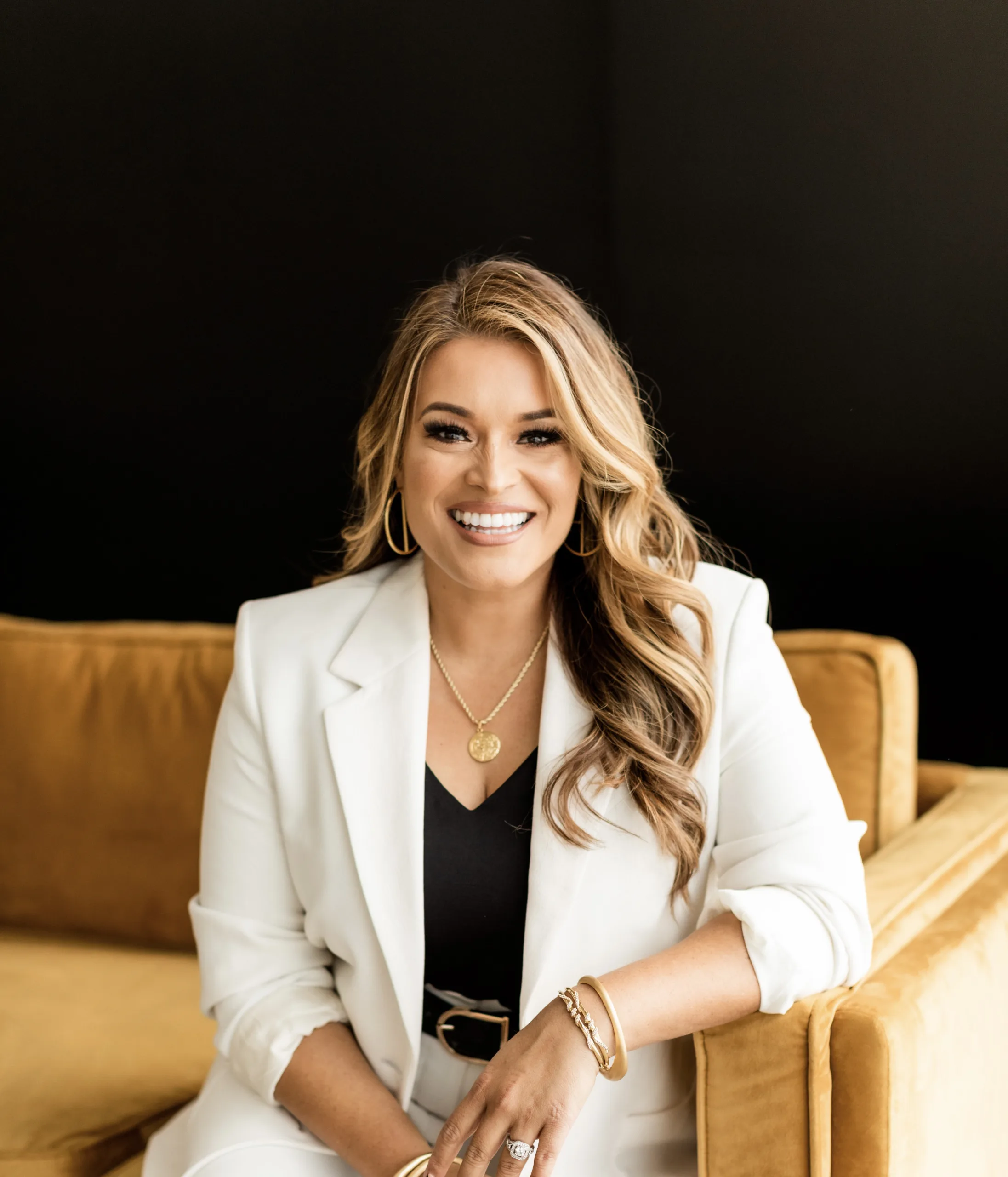Dr. Rick Hanson, professor of psychology at University of California, Berkley, argues that resilience training for your brain is like muscle building for your body. Strength is developed through lots of little efforts that add up over time. Little efforts throughout your day can result in real physical changes for a better brain.
But the activation and integration of these practices are two different things. Hanson also says that there’s some work to do between knowing how to be resilient and being resilient. Activating grit and resilience is temporary—it’s possible to get gritty during one specific challenge and then revert to your old ways. But installing that habit into our brains— through consistent practice (put in those reps!)— will allow us to persevere for the long haul.
According to Dr. Hanson, you can teach your brain to be more resilient by working on these three practices to train your brain: self-compassion, mindfulness, and gratitude.
Self-Compassion
My best friend, Melanie, repeats a phrase anytime she hears me speak negatively about myself, and it stops me in my tracks: “Stop talking about my best friend like that!” It’s a sobering reminder that if I heard anyone talking about her that way, I would probably need to throw hands. And if I heard anyone else talking to me that way, we would, at the very least, not be friends. Yet I am harshly judgmental and lack the compassion for myself that I would dole out by the gallon to literally anyone else. Melanie’s reframing allows me to see my own troubles and mistakes as part of being human.
As followers of Jesus, we know compassion should be extended to others. But do we extend compassion to ourselves? Instead of critical judgment, self-compassion is acknowledging our mistakes and faults and responding with kindness. Would you speak to a friend with the same harshness you speak to yourself?
There is a balance to this that must delicately lay between acceptance and improvement. Instead of highlighting mistakes or hiding in shame when failure hits, hold the tension between giving yourself and others grace, while acknowledging how things could improve. Kristin Neff, PhD, a pioneer in self- compassion research, identifies three main components of compassion:
- Self-kindness: Remove the inner critic creeping in your mind and silence the negative self- talk with a kinder, more compassionate voice.
- Common humanity: No one is perfect. We all fail and make mistakes. It’s part of being human.
- Mindfulness: Don’t just take note of your negative emotions. Feel them, but don’t react to them. Experience the feelings, but don’t let the feelings rule you.
Mindfulness
Mindfulness is a trendy word used from hip yoga instructors to TikTokers who teach breathing techniques to help center the mind. Though it might sound esoteric, it’s really just being aware of what’s happening as it’s happening. In short, it’s paying attention in the present moment. As followers of Jesus, our present moment is made fuller and secure by knowing that God is present with us. Being mindful is being aware of what God’s doing now and removes our attention to and preoccupation with later.
So train your brain! By consistently following healthy patterns of thought, over time, your brain physically changes. Through the process of neuroplasticity, the brain forms new neuronal pathways to support this kind of thinking, even when you’re not aware or trying to engage in mindfulness. Practicing mindfulness calms your brain and changes its default mode of operation.
The best way I’ve found to incorporate this practice is whenever I use social media. In the last couple of years, I’ve experienced such division, hatred, and misunderstanding on apps that are supposed to be social. Whether I’ve been the target or someone else was a target for mean and caustic words online, I close the apps and do the following:
- Pause and breathe. Sometimes I just need to inhale and exhale to remind my amygdala that even though I might be experiencing fear or anxiety, I’m actually not being chased by a saber-toothed tiger and a burglar isn’t at my door. Breathe. Focusing on your breath is an immediate path to mindful-ness because it exists only in the present moment. There is no breath in a past regret and none in a future anxiety. Get present and breathe. Even thirty seconds of focused breathing can make a big difference.
- Turn on awareness. Judge if you want to, but I talk to myself and I’m not afraid to admit it. This practice has helped me become more aware of my reality. You don’t have to talk aloud if that’s not your thing, but get into the discipline of labeling the truth of your situation. State reassuring, logical facts— I am safe; I am loved; I am kind. This will wake up your prefrontal cortex.
- Feel the feeling. In a moment when my brain is hijacked and my neurons are going haywire, I give myself grace and compassion to feel the feelings. I’m sad and feel lonely. Or I’m afraid I’ll be taken advantage of again. Or I want to quit because I have failed at it so many times things will never change. I give myself time to feel what I’m feeling. To really feel our feelings, we must be able to identify what’s truly behind them.
- Are you sure that you are feeling angry? Or is the emotion behind the rage simply sadness?
- Are you sure you are feeling frustration? Or is the emotion behind the exhaustion really fear?
- Are you sure you are feeling hungry? Or is the emotion behind the heaviness actually emptiness?
And once you get down to the most elemental pieces of what you’re feeling, feel it. It’s okay to acknowledge your sadness, disappointment, or whatever else is going on—in fact, it’s necessary.
- State the truth. No matter what we’re feeling, there is always more to the story. When we are going down a path of wanting to give up and walk away, we need to take a holistic and balanced view of our situation.
- I’m sad and feel lonely, but I can call a friend or visit a family member because it will help me build community.
- I’m afraid I’ll be taken advantage of again, but this time I’m wiser and know better.
- I want to quit because success hasn’t come yet, but with each failure I will learn something new that brings me closer to my goal.
As a person of faith, I am privileged with a library of truths in God’s Word. When I don’t know what to think or I can’t seem to identify a comforting truth, I lean on the teaching of my spiritual forefathers and foremothers and dig into Scripture. If I’m feeling overwhelmed or depressed, wanting to walk away and wither like a leaf, I remember God’s Word, and His truth gives me strength.
Mindfulness is a practice. It takes time and intentionality. But it has been proven— anecdotally by me, and scientifically by countless scholars— to help us live happier and more balanced lives.
Step Three: Gratitude
All that mindfulness and Scripture is great, but I knew that to make it stay rooted, I needed to balance those facts and feelings with gratitude. I wish I could say I am a naturally grateful person, but I’m not. I work at it. Part of my daily discipline is journaling, so the day after my pink-satin-top incident, I pulled out my journal and filled an entire page with a prayer of gratitude about my body.
- Thank You for my health.
- Thank You that I can hold a ninety- two second plank.
- Thank You that I can do twenty- six push- ups without stopping.
- Thank You that I can cycle eighteen miles in an hour.
- Thank You that my yoga practice is increasing my flexibility, both physically and mentally.
- Thank You that I sprinted in my HIIT class today for longer than I ever have before.
You get the point.
I made myself fill out the entire page because I wanted to really integrate this sense of gratitude into my life. I wanted to fight to find all the reasons that I’m grateful for the body God has given me. Now this where the rubber meets the road. The question I ask myself when I’m wanting to change something— a character trait, a habit, a pattern— is, Am I interested or am I committed? Do I want to build resistance or am I simply interested in one day, possibly, maybe getting around to building resistance? If we want to change, it begins with training our brains.
Taken from “Grit Don’t Quit” by Bianca Juarez Olthoff. Copyright 2023 by Bianca Juarez Olthoff. Used with permission from Thomas Nelson.
Bianca Juarez Olthoff is a bible-teaching, word-slanging MexiRican who is passionate about raising up a generation of people passionate about Jesus Christ. As an author and speaker, she knows the power of words and wields them wisely. As a church planter and leader, she is committed to proclaiming the gospel domestically and internationally.
















0 Comments